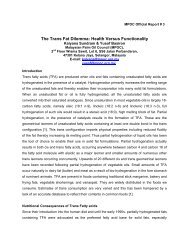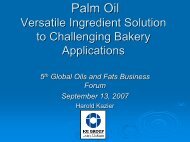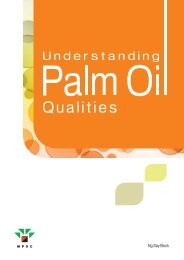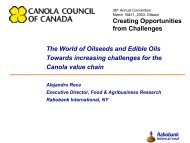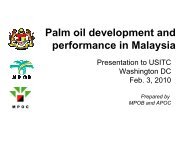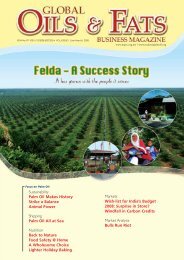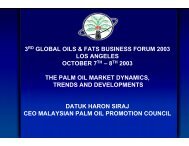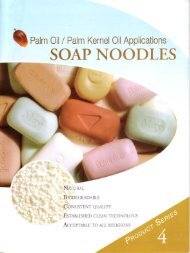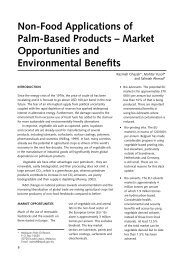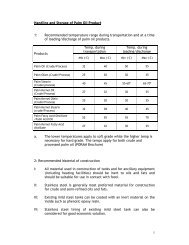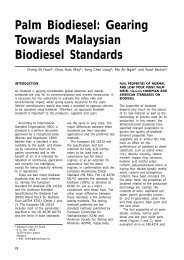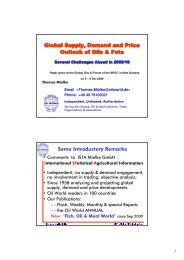Create successful ePaper yourself
Turn your PDF publications into a flip-book with our unique Google optimized e-Paper software.
Briefs<br />
Move to lower<br />
acrylamide in<br />
baked foods<br />
Science and Nutrition in Zurich<br />
headed by Renato Amado<br />
collaborated with Swiss biscuit<br />
manufacturer Kambly to study<br />
acrylamide in semi-finished<br />
products.<br />
reduced the pH of the mix, also<br />
significantly affecting arcylamide<br />
formation.<br />
The study clarified that such<br />
reduction only holds true if<br />
browning is not a key step of the<br />
baking process.<br />
Source: Food Navigator Europe<br />
GM rice<br />
faces hurdles<br />
Acrylamide is a reactive<br />
compound which was proven to<br />
induce cancer in laboratory rats in<br />
2002. It has since been established<br />
that acrylamide is formed when<br />
foods rich in starch are baked,<br />
fried or roasted during domestic<br />
cooking or industrial processing.<br />
This caused a worldwide alert.<br />
Investigations were undertaken by<br />
health authorities, co-ordinated by<br />
EU and the United Nations, to<br />
establish a mechanism to control,<br />
reduce and eliminate acrylamide<br />
from the food system (see Table).<br />
Recently, the Institute of Food<br />
Modifications to ingredients<br />
included:<br />
• Replacing the baking agent<br />
ammonium hydrogencarbonate<br />
with sodium hydrogencarbonate<br />
• Replacing inverted sugar syrup<br />
with sucrose solution<br />
• Increasing tartaric acid<br />
Acrylamide formation was<br />
reduced by 70% when sodium<br />
hydrogencarbonate was used by<br />
itself. When used with<br />
ammonium hydrogencarbonate,<br />
the content was significantly<br />
higher.<br />
Replacement of inverted sugar<br />
syrup with sucrose syrup<br />
decreased content by 70% and<br />
vice-versa. Adding tartaric acid<br />
Greenpeace is calling for an<br />
outright global ban on shipping<br />
US rice following the discovery of<br />
an errant gene, but advocates say<br />
that this will hurt people. Much of<br />
the population growth is<br />
occurring in rice-eating countries,<br />
which will require a 25% boost in<br />
rice production at the same time<br />
that land and water availability are<br />
declining.<br />
The solution is seen in the recent<br />
mapping of the rice genome.<br />
However, this is also caught up in<br />
economic protectionism, as<br />
evidenced by India ’s adoption of<br />
GM cotton, including the<br />
introduction of a national variety.<br />
Yet it is attempting to label GM<br />
foods that are largely imported.<br />
Source: Ag Perspectives<br />
GLOBAL OILS & FATS BUSINESS MAGAZINE •VOL.3 ISSUE 3, 2006 37



